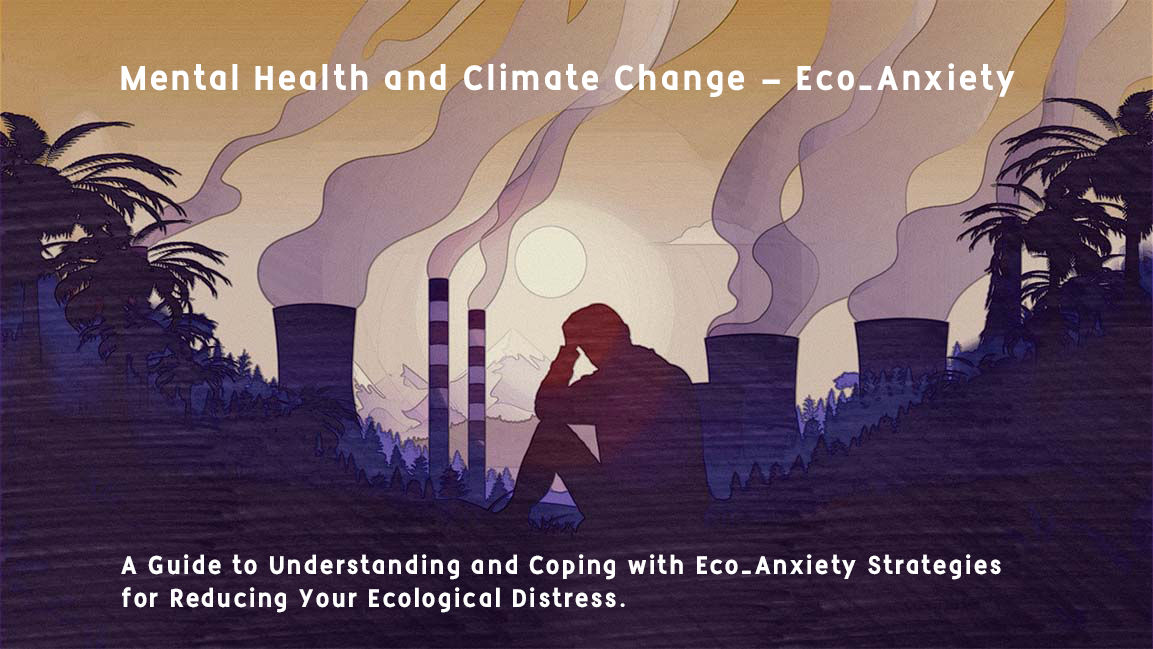
The frequency of alarming headlines about extreme weather events seems relentless. Every day, your social media feed bombards you with news of record-breaking temperatures. Yet, there are still influential individuals who deny the full impact of climate change.
In the midst of this, an academic paper on climate change has gained immense popularity, even causing some people to seek therapy. Reports suggest that it has been downloaded over 110,000 times, highlighting the widespread concern surrounding the issue.
Amidst the panic, many people feel overwhelmed by the enormity of the problem and their perceived insignificance as individuals on a planet of billions. This sense of powerlessness has given rise to a phenomenon known as ‘eco-anxiety.’ Psychology Today defines it as a psychological disorder affecting an increasing number of individuals who worry about the environmental crisis.
Anxiety disorders, in general, vary in severity, and according to Anxiety UK, more than 1 in 10 British adults are likely to experience a “disabling anxiety disorder” at some point in their lives.
While there is no available data on the prevalence of eco-anxiety, experts have observed a rise in public anxiety surrounding climate change. Susan Clayton, a professor of psychology and environmental studies, co-authored a report in 2017 titled “Mental Health and Our Changing Climate: Impacts, Implications, and Guidance.” She states that a significant proportion of people are experiencing stress and worry about the potential impacts of climate change, and this level of concern is undoubtedly increasing.
Although the Diagnostic and Statistical Manual of Mental Disorders, the guide used by mental health professionals in the US, does not yet include ‘eco-anxiety’ as a specific condition, the American Psychological Association’s 2017 report acknowledges the term and describes it as a chronic fear of environmental doom. It characterizes eco-anxiety as a source of stress arising from witnessing the gradual and seemingly irreversible effects of climate change and concerns for one’s own future, the well-being of children, and future generations. Furthermore, it notes that some individuals are deeply affected by feelings of loss, helplessness, and frustration due to their perceived inability to make a difference in halting climate change.
It is not surprising that the landmark 2018 report from the UN Intergovernmental Panel on Climate Change (IPCC) instills uncertainty in readers. The report called for urgent and unprecedented changes to achieve a 45% reduction in carbon emissions by 2030 to limit global warming to 1.5 degrees Celsius. Beyond this threshold, the report warned of catastrophic consequences such as flooding, extreme weather events, droughts, and famines.
Debra Roberts, lead author of the IPCC report, emphasized the urgency, stating, “It’s a line in the sand, and what it says to our species is that this is the moment and we must act now… I hope it mobilizes people and dents the mood of complacency.”
Mary Jayne Rust, a British eco-psychologist, has observed a significant increase in clients seeking therapy for eco-anxiety since the release of the IPCC report. The uncertainty of the future weighs heavily on their minds, leading to binge-drinking epidemics and other addictive behaviors. The general feeling of uncertainty makes it extremely challenging to cope.
Hilda Burke, a psychotherapist, has also noticed a growing number of clients expressing anxiety over the state and survival of the planet. Among individuals experiencing eco-anxiety, there is frustration rather than complacency.
Sam Johnston, from Manchester, shared his experience with eco-anxiety in a BBC Radio 1 documentary. He described the anxiety of feeling powerless as an individual, aware of the state of the planet and its potential future. Sleepless nights and heart palpitations characterize his struggle with eco-anxiety.
Even professionals working in environmental fields are not immune to its effects.
Tim Gordon, a marine biologist, has experienced a mixture of emotions during his research expeditions to places like the Great Barrier Reef and the Arctic Ocean. While his work allows him to witness incredible marine ecosystems, he also witnesses their rapid decline. He admitted to occasionally feeling numb to the situation but also having moments of despair when the tragic reality sinks in.
If you believe that eco-anxiety is impacting your mental health, there are steps you can take to address it. The NHS recommends treatments for Generalized Anxiety Disorder (GAD), such as Cognitive Behavioral Therapy (CBT) and medication.
Owen Gaffney, a co-author of a paper outlining achievable steps for governments, businesses, and individuals to mitigate climate change, believes that people should not succumb to hopelessness. He argues that individual choices can have a positive impact on the planet. Gaffney suggests considering your sphere of influence, including your employer, networks, and family, and using it to advocate for change. He emphasizes that convincing 25% of people, rather than 100%, can propel an idea from marginal to mainstream.
Gaffney remains optimistic, stating, “The science is loud, clear, and simple: we need to halve global emissions of greenhouse gases by 2030. All the solutions exist to do that, and if we implement them, more people will be living in cleaner cities, eating healthy diets, and working in resilient, buoyant economies.”
Duncan Geere, the editor of the report, acknowledges the feelings of powerlessness but highlights three actions individuals can take to make a difference and regain control. Firstly, incorporating climate change into decision-making regarding food, travel, and purchases. Secondly, engaging in conversations about climate change with friends, family, and colleagues. Lastly, demanding that politicians and companies facilitate easier and cheaper environmentally friendly choices.
Tim, the marine biologist, reminds us that while it may sometimes seem pointless, we still have the power to protect what remains and make a meaningful difference. Despite the troubling state of these ecosystems, collective efforts can preserve them and instigate positive change. This sense of purpose and hope drives the commitment to continue the fight against climate change.
Source: BBC







